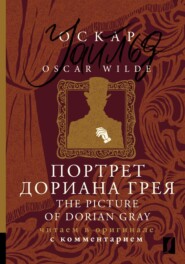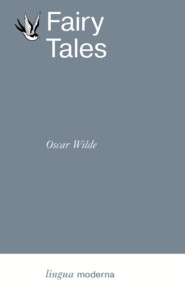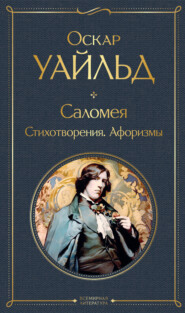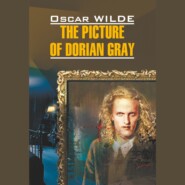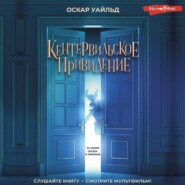По всем вопросам обращайтесь на: info@litportal.ru
(©) 2003-2024.
✖
A Critic in Pall Mall: Being Extracts from Reviews and Miscellanies
Настройки чтения
Размер шрифта
Высота строк
Поля
SCENE VIII
Elvira. Hugo
Elvira (after long silence, leaving the harp, steps to Hugo, and seeks his gaze).
Hugo (softly). Though I made sacrifice of thy sweet life, the Father has forgiven. Can the wife – forgive?
Elvira (on his breast). She can!
Hugo (with all the warmth of love). Dear wife!
Elvira (after a pause, in deep sorrow). Must it be so, beloved one?
Hugo (sorry to have betrayed himself). What?
The Renaissance had for its object the development of great personalities. The perfect freedom of the temperament in matters of art, the perfect freedom of the intellect in intellectual matters, the full development of the individual, were the things it aimed at. As we study its history we find it full of great anarchies. It solved no political or social problems; it did not seek to solve them. The ideal of the ‘Grand Siècle,’ and of Richelieu, in whom the forces of that great age were incarnate, was different. The ideas of citizenship, of the building up of a great nation, of the centralization of forces, of collective action, of ethnic unity of purpose, came before the world.
The creation of a formal tradition upon classical lines is never without its danger, and it is sad to find the provincial towns of France, once so varied and individual in artistic expression, writing to Paris for designs and advice. And yet, through Colbert’s great centralizing scheme of State supervision and State aid, France was the one country in Europe, and has remained the one country in Europe, where the arts are not divorced from industry.
Hawthorne re-created for us the America of the past with the incomparable grace of a very perfect artist, but Mr. Bret Harte’s emphasized modernity has, in its own sphere, won equal, or almost equal, triumphs.
It is pleasant to come across a heroine [Bret Harte’s Cressy] who is not identified with any great cause, and represents no important principle, but is simply a wonderful nymph from American backwoods, who has in her something of Artemis, and not a little of Aphrodite.
It is always a pleasure to come across an American poet who is not national, and who tries to give expression to the literature that he loves rather than to the land in which he lives. The Muses care so little for geography!
Blue-books are generally dull reading, but Blue-books on Ireland have always been interesting. They form the record of one of the great tragedies of modern Europe. In them England has written down her indictment against herself and has given to the world the history of her shame. If in the last century she tried to govern Ireland with an insolence that was intensified by race hatred and religious prejudice, she has sought to rule her in this century with a stupidity that is aggravated by good intentions.
Like most penmen he [Froude] overrates the power of the sword. Where England has had to struggle she has been wise. Where physical strength has been on her side, as in Ireland, she has been made unwieldy by that strength. Her own strong hands have blinded her. She has had force but no direction.
There are some who will welcome with delight the idea of solving the Irish question by doing away with the Irish people. There are others who will remember that Ireland has extended her boundaries, and that we have now to reckon with her not merely in the Old World but in the New.
Plastic simplicity of outline may render for us the visible aspect of life; it is different when we come to deal with those secrets which self-consciousness alone contains, and which self-consciousness itself can but half reveal. Action takes place in the sunlight, but the soul works in the dark. There is something curiously interesting in the marked tendency of modern poetry to become obscure. Many critics, writing with their eyes fixed on the masterpieces of past literature, have ascribed this tendency to wilfulness and to affectation. Its origin is rather to be found in the complexity of the new problems, and in the fact that self-consciousness is not yet adequate to explain the contents of the Ego. In Mr. Browning’s poems, as in life itself, which has suggested, or rather necessitated, the new method, thought seems to proceed not on logical lines, but on lines of passion. The unity of the individual is being expressed through its inconsistencies and its contradictions. In a strange twilight man is seeking for himself, and when he has found his own image, he cannot understand it. Objective forms of art, such as sculpture and the drama, sufficed one for the perfect presentation of life; they can no longer so suffice.
As he is not a genius he, naturally, behaves admirably on every occasion.
Certainly dialect is dramatic. It is a vivid method of re-creating a past that never existed. It is something between ‘A Return to Nature’ and ‘A Return to the Glossary.’ It is so artificial that it is really naïve. From the point of view of mere music, much may be said for it. Wonderful diminutives lend new notes of tenderness to the song. There are possibilities of fresh rhymes, and in search for a fresh rhyme poets may be excused if they wander from the broad highroad of classical utterance into devious byways and less-trodden paths. Sometimes one is tempted to look on dialect as expressing simply the pathos of provincialisms, but there is more in it than mere mispronunciation. With that revival of an antique form, often comes the revival of an antique spirit. Through limitations that are sometimes uncouth, and always narrow, comes Tragedy herself; and though she may stammer in her utterance, and deck herself in cast-off weeds and trammelling raiment, still we must hold ourselves in readiness to accept her, so rare are her visits to us now, so rare her presence in an age that demands a happy ending from every play, and that sees in the theatre merely a source of amusement.
There is a great deal to be said in favour of reading a novel backwards. The last page is, as a rule, the most interesting, and when one begins with the catastrophe or the dénoûment one feels on pleasant terms of equality with the author. It is like going behind the scenes of a theatre. One is no longer taken in, and the hairbreadth escapes of the hero and the wild agonies of the heroine leave one absolutely unmoved.
He has every form of sincerity except the sincerity of the artist, a defect that he shares with most of our popular writers.
On the whole Primavera is a pleasant little book, and we are glad to welcome it. It is charmingly ‘got up,’ and undergraduates might read it with advantage during lecture hours.
notes
1
Reverently some well-meaning persons have placed a marble slab on the wall of the cemetery with a medallion-profile of Keats on it and some mediocre lines of poetry. The face is ugly, and rather hatchet-shaped, with thick sensual lips, and is utterly unlike the poet himself, who was very beautiful to look upon. ‘His countenance,’ says a lady who saw him at one of Hazlitt’s lectures, ‘lives in my mind as one of singular beauty and brightness; it had the expression as if he had been looking on some glorious sight.’ And this is the idea which Severn’s picture of him gives. Even Haydon’s rough pen-and-ink sketch of him is better than this ‘marble libel,’ which I hope will soon be taken down. I think the best representation of the poet would be a coloured bust, like that of the young Rajah of Koolapoor at Florence, which is a lovely and lifelike work of art.
2
‘Make’ is of course a mere printer’s error for ‘mock,’ and was subsequently corrected by Lord Houghton. The sonnet as given in The Garden of Florence reads ‘orbs for ‘those.’
3
The Margravine of Baireuth and Voltaire. (David Stott, 1888.)
4
September 1888.
5
See The Picture of Dorian Gray, chapter xi., page 222.
6
From Lady Wilde’ Ancient Legends of Ireland.







